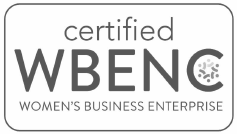It has been a tough real estate market, but recent reports show evidence of growth with Connecticut home prices and sales rising. While this may be a promising sign, things are still slow to recover and real estate companies — whether residential or commercial, architects or design builders — must continue to strategically market their companies and properties.
I very purposefully use the word “strategy” because what’s hot today can be gone tomorrow in our real-time media world. Therefore, we don’t advocate chasing trends for the sake of being on-trend. While evaluating these potential marketing opportunities, remember that the adoption needs to make business sense as part of a holistic and thoughtful marketing strategy with appropriate goals and methods for measuring success.
Engaging with photos, videos
Over the past few years, seemingly endless platforms focused on visuals have emerged. Whether video or static images, this form of communication is growing and becoming the preferred method of communication. According to Trend Reports, a research company that gathers crowd-sourced consumer insights, between 65 and 85 percent of people describe themselves as “visual learners.”
Imagery evokes emotion and helps attract the audience’s attention in a world where people are bombarded with thousands of advertising messages every day. Therefore, the viral potential of image-based content on platforms such as Pinterest, Instagram and Vine, to name a few, cannot be ignored.
The good news for those in real estate is that it is a visual business. In other words, realtors, builders and architects have a consistent stream of content at their disposal. Consistently creating great content fuels search engine optimization and underscores thought leadership.
Selling with valuable info
Inbound marketing is a way to draw the prospect in by providing content they are actively seeking rather than pushing a company’s message at the audience. Inbound marketing earns the attention of customers by providing them with information that is helpful and interesting.
Visual content is a key ingredient of inbound marketing. Examples of other inbound marketing components include blogs, podcasts, videos, whitepapers, eBooks, or other incentives that appeal to the prospect.
A realtor might draft a blog post on “How to know when you are ready to buy” and connect it to a whitepaper titled, “Mortgage Applications 101.” A builder might create an eBook about the “Ten things clients need to know about building a home.” Again, consistently creating great content fuels search engine optimization and underscores thought leadership, but — most importantly — this type of marketing builds trust.
Capitalizing on client satisfaction
So you have created compelling content, given away some free ideas and gained trust — and these efforts have secured some new clients. What now? A 2012 study by Nielsen found that online reviews, via sources such as Yelp and Angie’s List, are among the most trusted sources for information for consumers. Meanwhile, a recent survey by ZipRealty found that 71 percent of respondents said they would do an Internet search of a real estate agent who was referred to them by word-of-mouth to learn more before calling the agent.
While the real estate industry in general has been slower to adopt online customer reviews, these statistics should offer reason to reconsider.
In order to gain good reviews, it goes without saying that you must provide great service that inspires your clients to share their experience. After you have, there is nothing wrong with prompting a client to write a review.
There is a glut of information online that talks about specific social media platforms — how to sign-up for them, how to use them, how to measure your success. The platforms themselves are not the strategy — they are the conduits to your audience, and as I began this column saying, they will come and go. Creating a strong marketing strategy that helps build relationships with prospective clients and supports business goals is the real point. And that is something that will never change.g
Jessica Lyon is the senior vice president of Co-Communications, a marketing and PR firm in Farmington.

